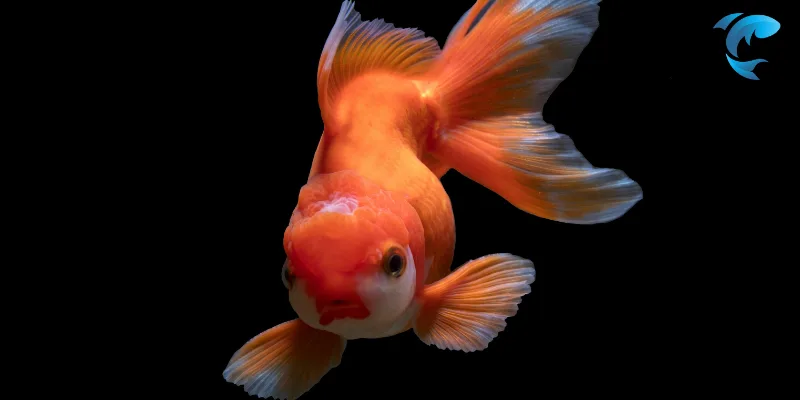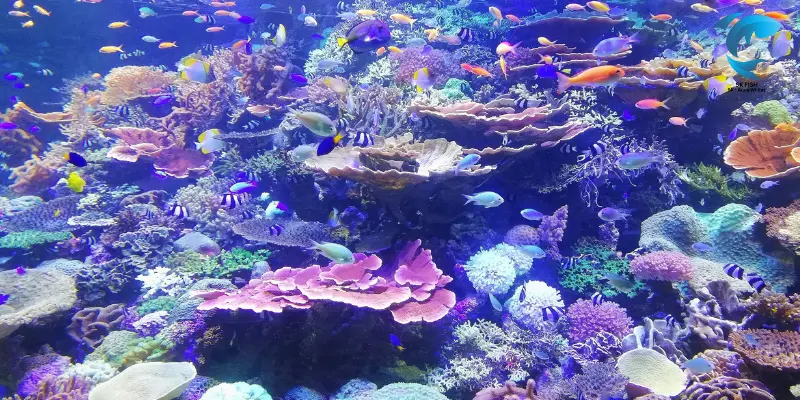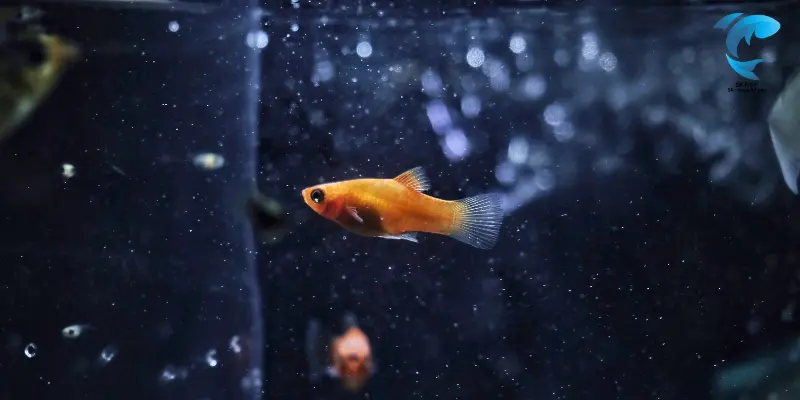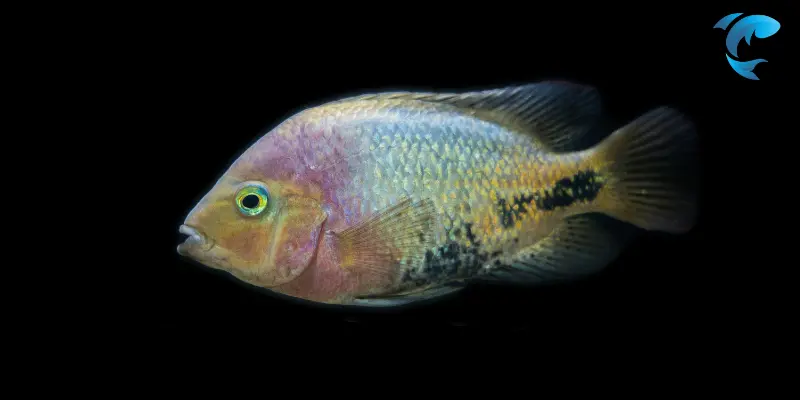The Ultimate Guide to Freshwater Fish: Species, Care, & Tank Setup
Published: 11 Mar 2025
Many aquarium enthusiasts struggle to choose the right freshwater fish and maintain a healthy tank environment. Fish can become stressed, sick, or even die without proper knowledge, leading to costly replacements and frustration. new
The good news is that with the right help in choosing species, caring for them, and setting up the tank, you can avoid these problems. This way, you can create a healthy aquatic ecosystem. This guide will help you make informed decisions every step of the way.
1. Introduction to Freshwater Fish
What Are Freshwater Fish?
Freshwater fish primarily live in water bodies with low salinity, such as rivers, lakes, and streams. Unlike their saltwater counterparts, they are adapted to thrive in environments with minimal dissolved salts. Their gills, scales, and body functions help them balance salt and water. This balance lets them live and grow in freshwater habitats.
Importance of Freshwater Fish
Freshwater fish are crucial to the ecological balance of their native environments. They help aquatic ecosystems by controlling algae, keeping water clear, and providing food for other wildlife.
Additionally, freshwater fish help in nutrient cycling, which keeps the ecosystem vibrant and self-sustaining. These species also contribute significantly to biodiversity, making freshwater habitats incredibly rich in life.
Benefits of Keeping Freshwater Fish
Whether you’re a seasoned aquarist or a beginner, keeping freshwater fish provides several benefits. Freshwater fish tanks are a source of relaxation, often bringing therapeutic effects such as stress relief and improved focus.
For aquarists, they offer a low-maintenance yet rewarding hobby. Freshwater aquariums are not only visually appealing, but they also provide educational opportunities about biology and aquatic ecosystems.
2. Types of Freshwater Fish
Species Classification
Freshwater fish can be classified into three categories based on their habitat and care requirements: tropical, coldwater, and brackish. Tropical Fish like guppies and tetras prefer warm water and are often found near the equator. Coldwater Fish, like goldfish, thrive in cooler temperatures, and brackish species need a mix of freshwater and saltwater.
Popular Freshwater Fish Species for Aquariums
| Beginner-Friendly Species |
|---|
|

| Intermediate Species |
|---|
|
| Advanced Species |
|---|
|
Rare and Exotic Freshwater Fish
Some rare species, like the Electric Eel and Emperor Tetra, require highly specialized care. These exotic fish have special needs for their environment. This includes water conditions, diet, and tank size. Because of this, they are best for experienced fish keepers.
3. Freshwater Fish Biology
Anatomy and Physiology of Freshwater Fish
Freshwater fish have specialized anatomy suited for life in low-salinity environments. Their gills filter oxygen from the water, while their scales offer protection from external threats. Their fins help them swim and stay balanced. Their kidneys and digestive system help control salt and water levels.
Life Cycle of Freshwater Fish
The life cycle of freshwater fish varies by species, but most start as eggs, hatch into larvae, and mature into adult fish. The time it takes to reach maturity depends on the species. For example, guppies mature quickly, while species like arowanas can take several years to get full size.
Behavioural Traits
Freshwater fish display various behaviors, from the schooling habits of tetras to the territorial nature of cichlids. Understanding these behaviors is crucial for creating a peaceful aquarium environment. Many species are social, while others, like bettas, prefer solitary.

4. Setting Up a Freshwater Aquarium
Choosing the Right Aquarium Size
The right tank size depends on the species you choose. Small fish like bettas and guppies do well in smaller tanks of 10 to 20 gallons. Larger fish, like goldfish or arowanas, need bigger tanks of 50 gallons or more. A larger tank also helps maintain water quality, which is essential for fish health.
Aquarium Equipment and Accessories
To set up a healthy aquarium, you’ll need:
- Filters: Essential for removing waste and maintaining water quality.
- Heaters: These are required for tropical Fish to maintain a stable temperature.
- Lighting: Necessary for plant growth and fish health.
- Aerators: Help maintain oxygen levels in the water.
Other accessories include gravel, decorations, and plants to provide hiding spots and stimulate natural behavior.
Water Parameters and Chemistry
Maintaining ideal water conditions is critical. Keep an eye on:
- pH: Most freshwater fish thrive in slightly acidic to neutral pH (6.5-7.5).
- Hardness: A measure of the mineral content in water.
- Temperature: Tropical Fish need water temperatures between 75-80°F, while coldwater Fish prefer cooler conditions.
- Ammonia and Nitrite Levels: These should be as close to zero as possible to prevent toxicity.
Setting up a Tank: Step-by-Step Guide
- Prepare the Tank: Clean it thoroughly before setting it up.
- Add Substrate: Gravel or sand for the bottom.
- Install Equipment: Place the filter, heater, and lighting.
- Cycle the Tank: Let the tank run for several weeks to establish beneficial bacteria before introducing Fish.
- Introduce Fish Gradually: Start with a few hardy species and slowly add others.
Using Live Plants and Decorations
Live plants make your aquarium look better. They help add oxygen to the water and give fish places to hide. Decorations like rocks and driftwood add to the natural environment.

5. Freshwater Fish Care and Maintenance
Feeding Freshwater Fish
Feed your Fish a varied diet depending on their species:
- Pellets or flakes: Suitable for most species.
- Frozen or live food: Ideal for carnivorous species like arowanas.
- Herbivores: Provide algae or plant-based foods.
Stick to a feeding schedule and avoid overfeeding, as uneaten food can degrade water quality.
Water Quality Maintenance
Regular water changes are essential for keeping your tank clean and safe for Fish. Perform water changes every 1-2 weeks, changing 10-20% of the water. Test the water regularly for ammonia, nitrites, and nitrates.
Maintaining Ideal Tank Conditions
Keep the water temperature and oxygen levels stable. Regularly check the equipment to ensure the filter and heater are functioning correctly.
Regular Aquarium Maintenance Checklist
- Test water quality weekly.
- Clean the tank every 2-4 weeks.
- Replace filters every few months.
- Prune plants and remove dead leaves.

6. Freshwater Fish Diseases and Health
| Common Freshwater Fish Diseases |
|---|
|
| Symptoms and Diagnosis |
|---|
Look for signs like lethargy, faded color, abnormal swimming, or refusal to eat. |
| Treatments and Preventive Measures |
|---|
Use medication as necessary and always quarantine new Fish for at least two weeks before adding them to the main tank. Keep your tank clean and maintain proper water conditions to prevent disease outbreaks. |
| Fish Stress: Causes and Solutions |
|---|
Stress can result from poor water conditions, incompatible tank mates, or overcrowding. To ensure your Fish’s well-being, monitor them closely and resolve any issues quickly. |
7. Freshwater Fish Tank Compatibility
Choosing Compatible Fish
Research each species’ aggression levels, size requirements, and social behavior to create a peaceful tank environment. Use a fish compatibility chart to ensure that different species can coexist harmoniously.
Building a Community Tank
When choosing Fish for a community tank, aim for peaceful species with similar water and dietary needs. Mixing carnivores and herbivores can cause problems, so select compatible Fish.
Reef Tank vs. Freshwater Community Tank
Reef tanks, which are typically saltwater, require different equipment and maintenance than freshwater community tanks, which are generally easier to maintain.

8. Breeding Freshwater Fish
Breeding in Captivity
Breeding freshwater fish can be a rewarding experience. Many species, including guppies, mollies, and tetras, breed easily in home aquariums.
Popular Breeders
Guppies and mollies are known for breeding prolifically, making them ideal for beginners.
Setting up a Breeding Tank
Provide a separate tank with optimal water conditions and sufficient hiding places for the fry. Ensure the water temperature and pH are appropriate for your breeding species.
9. Common Myths About Freshwater Fish
| Debunking Misconceptions |
|---|
|
| Clarifying Common Mistakes |
|---|
Overfeeding Fish or overcrowding the tank can lead to poor water quality and stressed Fish. |
9. Freshwater Fish and the Environment
Conservation of Freshwater Fish Species
Many freshwater species are at risk due to pollution, overfishing, and habitat loss. Supporting conservation efforts is crucial to preserving biodiversity.
Sustainable Fishkeeping
Opt for ethically sourced Fish and avoid purchasing endangered species. Support breeders and retailers who prioritize sustainable practices.
Key Takeaways: The Ultimate Guide to Freshwater Fish
- Choose the Right Fish for Your Experience: Beginners should start with hardy species like bettas, goldfish, and guppies. Advanced fish like arowanas or piranhas require specialized care and larger tanks.
- Tank Setup is Critical: Proper tank size, equipment (filters, heaters, aerators), and ideal water conditions (pH, temperature) are essential for healthy fish.
- Regular Maintenance: Perform water changes every 1-2 weeks, monitor water quality, and check equipment regularly to avoid stress or disease in fish.
- Fish Compatibility Matters: Select species that share similar water requirements and behavior to create a peaceful community tank.
- Preventive Care for Fish Health: Quarantine new fish, manage stress, and keep the tank clean to prevent common diseases like ich, fin rot, and velvet disease.
Conclusion
Whether you’re just starting your aquarium journey or you’ve been keeping fish for years, this guide offers all the information necessary to ensure your freshwater fish thrive. Proper tank setup, regular maintenance, and understanding the needs of different species are key to creating a balanced, healthy environment. freshwater fish—ranging from the graceful Angelfish to some of the largest species like the Arapaima, Giant Gourami, and Redtail Catfish—offer both beauty and excitement. With the proper knowledge and care, you can enjoy a peaceful, rewarding hobby and form a lasting connection with these fascinating aquatic companions.
Frequently Asked Questions (FAQs)
Stressed Fish often show noticeable changes in behavior and appearance. Common signs of stress include:
- Lethargy: Active Fish usually become sluggish or spend more time hiding.
- Erratic Swimming: Fish may swim in circles, rub against objects, or dart around the tank.
- Loss of Appetite: A stressed fish may stop eating or change their feeding habits.
- Faded Colors: Stress can cause Fish to lose their vibrant colors, making them appear dull or washed out.
- Gasping for Air could indicate poor water quality or low oxygen levels. To resolve stress, check water quality, ensure proper tank mates, and reduce sudden changes in the tank environment.
The main difference lies in the tank setup, water parameters, and maintenance needs:
- Water Chemistry: Freshwater fish thrive in tanks with a low salinity environment, while saltwater fish require higher salinity levels. Freshwater tanks typically have a pH of 6.5-7.5, whereas saltwater tanks have a higher pH and different mineral content.
- Freshwater tanks need simpler filtration and heating systems than saltwater tanks. Saltwater tanks often need advanced filtration, protein skimmers, and special heaters to keep water quality high.
- Fish Behavior: Saltwater fish can be more territorial and aggressive, requiring careful species selection. Freshwater fish are generally easier to house together, though compatibility still matters.
- Maintenance: Freshwater tanks generally require less frequent water changes and are easier to maintain overall. Saltwater tanks demand more consistent monitoring of salinity, pH, and specific gravity levels.
Yes, most freshwater fish can live with live plants, and in fact, they benefit from having them. Live plants improve water quality by absorbing excess nutrients like nitrates, which can lead to algae growth. Plants also provide natural hiding spots for Fish, reduce stress, and oxygenate the water. However, choosing the right plants based on your fish species is essential. Some fish, like goldfish or certain cichlids, might nibble on plants, so it’s best to select hardy plant species that can withstand light grazing. Popular choices include Java Ferns, Anubias, and Amazon Swords.
The first step is to observe their behavior and physical appearance. Here are common signs that your Fish may be unwell:
- Physical Symptoms: White spots (Ich), lesions, swelling, clamped fins, or visible wounds.
- Behavioral Symptoms: Erratic swimming, rubbing against tank surfaces, losing appetite, or lethargy. If you notice any of these symptoms, isolate the affected Fish in a quarantine tank if possible. Testing the water for ammonia, nitrites, and pH levels is crucial, as poor water quality is a common cause of illness. Consult an aquarium vet or seek advice from an experienced fishkeeper to determine the proper treatment. Common remedies include medicated treatments for specific diseases, improving water conditions, and adjusting the temperature.
Water changes are a crucial part of aquarium maintenance. The frequency of water changes depends on tank size, stocking density, and filtration:
- Small Tanks (under 20 gallons): Perform partial water changes of about 20-30% once a week.
- Larger Tanks (20+ gallons): You can usually change 10-20% of the water every 1-2 weeks. However, bigger or more crowded tanks may need changes more often. It’s important to use a water conditioner to remove chlorine or chloramine from tap water. Always match the temperature of the new water to the tank’s temperature. Regular water testing (for ammonia, nitrite, and nitrate levels) can also help guide the timing and extent of water changes.
Fish swimming at the surface can be a sign of several potential issues, including:
- Low Oxygen Levels: If the oxygen in the tank is low, fish may swim near the surface. The surface has slightly higher oxygen levels. This can be caused by poor filtration, overcrowding, or a lack of aeration.
- Water Temperature: If the water is too warm, Fish may swim at the surface to get more oxygen or to escape the warmer temperatures.
- Poor Water Quality: High ammonia, nitrites, or nitrates can stress Fish, prompting them to swim near the surface in search of cleaner water. To address this, check your filtration system and oxygen levels (e.g., by adding an air pump or increasing surface agitation) and ensure the water quality is within safe parameters. Regular water testing is key to ensuring a healthy tank environment.

SK Fish is your trusted source for practical fish care tips and delicious seafood recipes. Our team is dedicated to providing reliable, well-researched content for fishing enthusiasts and home cooks alike.

- Be Respectful
- Stay Relevant
- Stay Positive
- True Feedback
- Encourage Discussion
- Avoid Spamming
- No Fake News
- Don't Copy-Paste
- No Personal Attacks



- Be Respectful
- Stay Relevant
- Stay Positive
- True Feedback
- Encourage Discussion
- Avoid Spamming
- No Fake News
- Don't Copy-Paste
- No Personal Attacks






